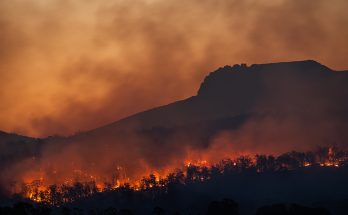A report from Bloomberg lays out the ways that natural gas is now affecting not only the world’s carbon future, but our present geopolitics and international economy. The price of the ostensible bridge fuel has increased in some European markets by as much as 700 percent as Russian embargoes have tightened its supply considerably. Against this backdrop, the unrelenting pressures of global energy demand have revived an old enemy: coal.
The looming energy crisis, according to Bloomberg, has forced poorer countries that have invested in natural gas-based power infrastructure to implement planned blackouts, while wealthier ones are facing widespread economic recession due to inflated costs. At the conclusion of last week’s G7 summit in Bavaria, leaders called for significant investment in natural gas infrastructure to address the situation — a statement that has been criticized as “backsliding” on prior commitments to climate action.



